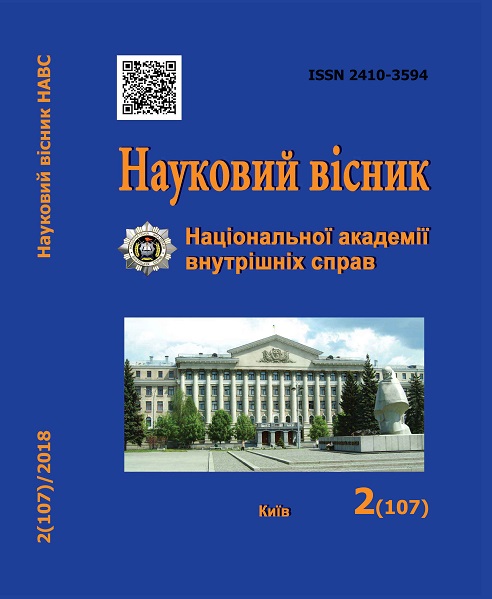Prohibition of Financial Gain in International Law Regarding Usage of the Human Body and its Parts (Bioethical Aspects)
Abstract
The article deals with the legal provisions on prohibition of financial gain in international law, particularly regarding important bioethical issues, as the use for scientific-research purposes, donation and transplantation of human body and its parts (human anatomical materials: organs, tissues, cells and blood). The analysis of a number of international documents (Declarations, Conventions, Recommendations, resolutions, Charter, Directives) of global and regional international organizations (United Nations, Council of Europe, European Union) demonstrates their joint international activities towards prevention of human rights violations in the field of the use of human anatomical materials. The ethical problem in sphere of transplantation has been created by receiving of financial profit for human anatomical materials, which essentially have become the object of purchase & sale, that raised the issue of prohibiting their use for profit on the international level. Due to the increasing demand for human anatomical material the transplant tourism is expanding in the world, bypassing legal restrictions on the national level, the commercial basis of which is the human body, which is regarded as a commodity. The transplantats’ shortage is one of the main causes of human trafficking for removal of anatomical materials, as well as creation of «black market» for their illegal circulation. Therefore, the development of international transplant programs aimed at preserving human life is the priority of international health policy. Prohibition on financial gain in the field of donation and transplantation plays an important role in prevention of organs and persons trafficking as international crimes, which currently have become a global international problem. The necessity of protection and respect for human rights and dignity of a person throughout the entire period of his or her life, as well as his or her body after death
(to prevent illegal removal of human anatomical materials for transplantation) is emphasized. The importance of prevention of a negative tendency in development of material incentives in relation to human body and its parts, especially in the conditions of commercialization of medicine, is determined.
Downloads
Abstract views: 156 PDF Downloads: 173
- Authors reserve the right to authorship of their own work and transfer to the magazine the right of the first publication of this work under the terms of the Creative Commons Attribution License, which allows other persons to freely distribute published work with mandatory reference to authors of the original work and the first publication of an article in this magazine.
- Authors have the right to enter into separate additional agreements on non-exclusive dissemination of the work in the form in which it was published in the journal (for example, to post an article in the institution's repository or to publish as part of a monograph), provided that the link to the first publication of the work in this journal is maintained.
- The journal's policy allows and encourages the posting of articles by authors on the Internet (for example, in electronic storehouses of institutions or on personal websites), both before the submission of this manuscript to the editorial office and during its editorial processing, as this contributes to the creation of a productive scientific discussion and positively affects the efficiency and dynamics of citing the published work.




